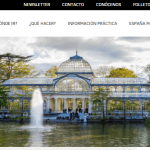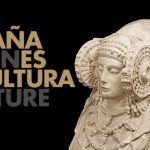SEGITTUR has published a Manual that brings together the experiences of Smart Destinations in provincial councils and island councils, the culmination of the work undertaken in the DTI Network.
Since its inception, the Smart Destination model was created as an initiative focussed on local authorities given their important role in the development of public policies that contribute to the growth of tourism activity in their regions.
Given the complexity of applying the DTI diagnosis methodology in provinces and islands, both on account of the territorial extension and the diversity of destinations, the decision was made create a “promoter of the DTI model” category and a taskforce was set up as part of the DTI Network, led by the provincial council of Barcelona.
The efforts of this taskforce have seen the preparation of this manual, which brings together 35 actions distributed across six blocks associated with the DTI model, which are: territorial structure, sustainability, entrepreneurship and innovation, digital transformation, data management and measurement systems, universal accessibility and responsible tourism experiences.
As part of the territorial structure, the experiences include those of the island council of Tenerife and its INTEGRATUR programme; the provincial council of Bizkaia and its Bilbao Bizkaia 2030 tourism strategy; the provincial council of Gipuzkoa and its BEGIKA model; the provincial council of Barcelona and its local governance programme contract; the island council of Mallorca and the DTI Mallorca Network; or the provincial council of Malaga and its DTI Costa del Sol Occidental Master Plan.
In relation to sustainability, worth particular mention are the cases of the provincial council of Lugo and its Sustainable Tourism awards; the provincial council of Barcelona with its Biosphere methodological model; the island council of Menorca with its Insular Territorial Plan: tourist planning; or the island council of Formentera and its Save Posidonia initiative.
Regarding entrepreneurship and innovation, the manual highlights the examples of the provincial council of Pontevedra and TurisTIC; the island council of Tenerife and Tenerife Work & Play; the provincial council of Bizkaia and Turisberri; the provincial council of Gipuzkoa with its Gipuzkoa Tourism Hub; and the provincial council of Malaga with its Provincial School of Entrepreneurship.
Digital transformation is another of the aspects addressed in the manual and the projects work special mention include the island council of La Palma and its La Palma Smart Island; the island council of Lanzarote its OIT Tourism Management Software; or the provincial council of Pontevedra and Tourist Inside.
The manual also analyses data management and measurement, with special mention going to the cases of the island council of Formentera and its data observatory; the island council of Mallorca and its sustainable tourism observatory; the provincial council of Barcelona and SITS-OTB; the provincial council of Valencia and Connecta VLC; the provincial council of Malaga and Big Data and Malaga Tourist Intelligence; and the island council of Gran Canaria with its SITGRAN Project.
Universal accessibility is the last factor addressed, with examples including the initiatives of the provincial council of Granada and Turismo Granada Accesible; the provincial council of Huelva and its Training in DTI accessibility and accessible tourism; the island council of Tenerife and Sinpromi; and the provincial council of Bizkaia and its Bilbao Bizkaia tourist accessibility model.





